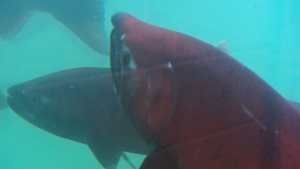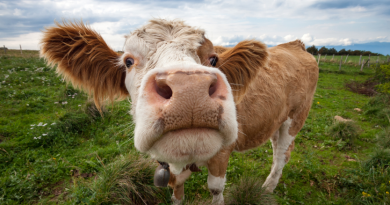Get tough with U.S. on salmon: chief

Preliminary data indicates the 2012 Chinook salmon run on the Yukon River was the worst ever.
The International Yukon River Panel is meeting in Whitehorse, the capital city of Canada’s Yukon territory, this week to plan a management strategy for 2014. Federal Fisheries officials who represent Canada at the talks refuse to say how they plan to address the issue.
Closed door meetings were held Sunday and continued Monday with a public session beginning Tuesday.
Yukon First Nation leaders are calling on the Americans to meet their obligations under the Pacific Salmon treaty.
It guarantees at least 40,000 Yukon River salmon will reach Canada, but that’s only happened twice in the last seven years.
Yukon River Chinook, or kings as they’re called in Alaska, are considered by some to be the world’s tastiest salmon, but their dwindling numbers suggest they could soon be the world’s rarest.
The international treaty aimed at managing fisheries, and ensuring a fair return of fish to Canada, has failed miserably according to Yukon First Nations.
The chief of the Teslin Tlingit First Nation, Carl Sidney, is a former panel member. He’s calling on Canadian authorities to get tough with the Americans.
“Holding the United States government feet to the fire, virtually trying to get them to uphold their end of the bargain, and at this time they don’t really seem too concerned about it,” Sidney said.
Teslin Tlingit leaders are calling for an international ban on Chinook salmon fishing in the Yukon River until stocks recover. Other Yukon First Nations have also expressed their unhappiness about the salmon run to federal officials.
Alaska managers counter they’ve already begun making big cuts to the annual harvest.
Related Link:
King salmon returns slowing, Alaska managers roll out closures, Alaska Dispatch
Researcher lays out three major possibilities for Alaska king salmon crash, Alaska Dispatch
Yukon, Canada First Nation calls emergency meeting on salmon, CBC News



